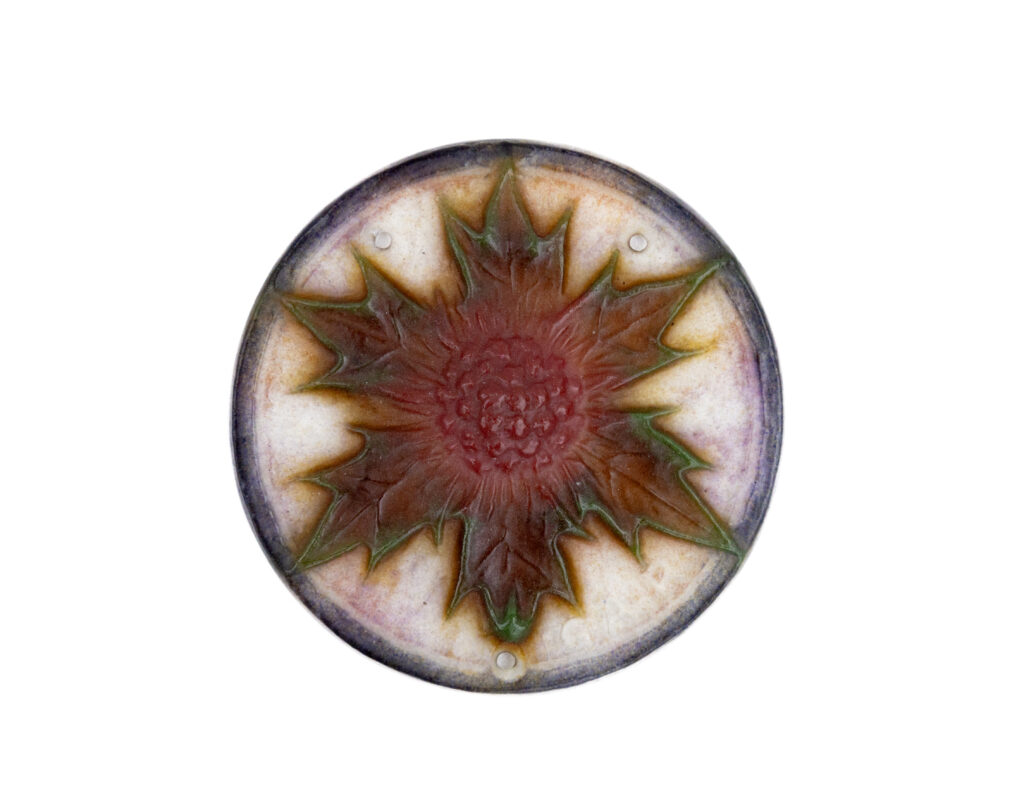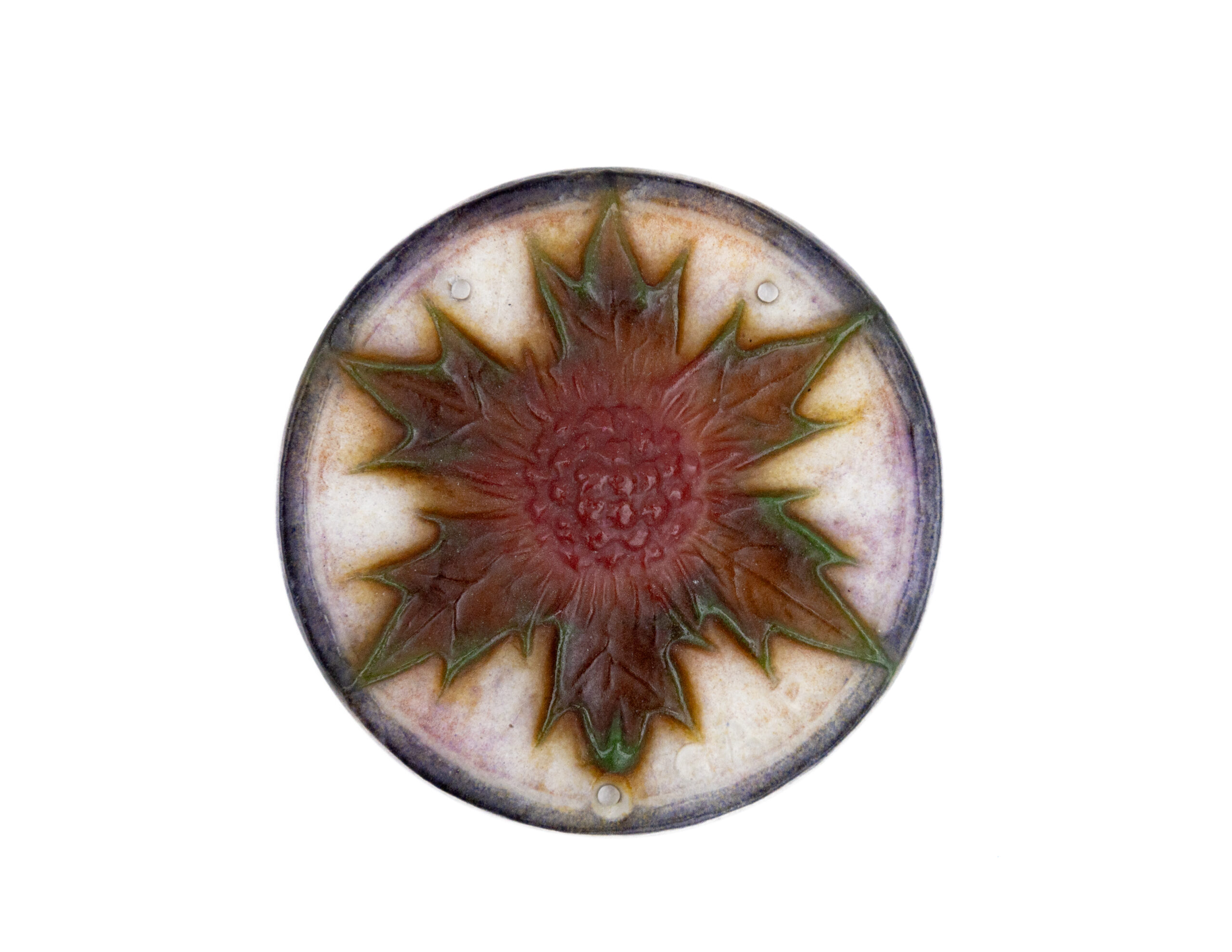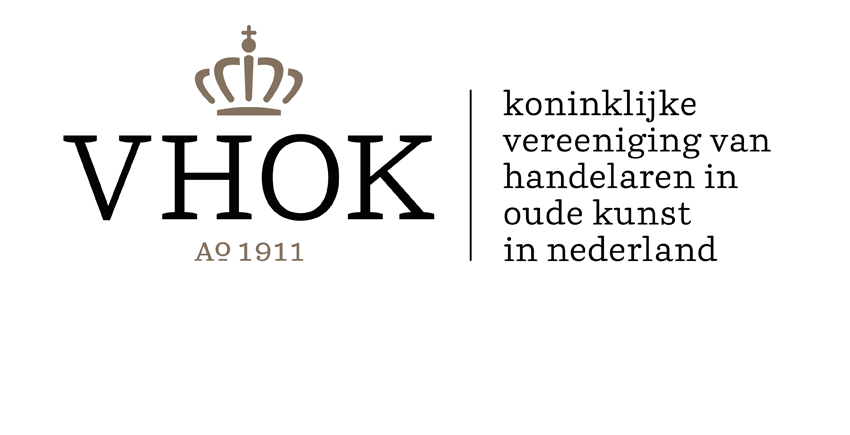Details:
Manufacturer: Gabriël Argy-Roussau
Object: Pendant
Motif: Chardon
Style: Art Deco
Material: Molded pâte de verre glass
Color: Black, purple, green and red
Period: 1920 – 1929
Dimensions:
Diameter: 6,7cm
Thickness: 0,8cm
Condition: Excellent condition, tiny chip at the rear edge
Literature:
Janine Bloch-Dermant – G. Argy-Rousseau, Glassware As Art. Page 203
Price: € 1250,-
Description:
Gabriel Argy-Rousseau is widely recognized as a master of pâte de verre, a refined glassmaking technique that experienced an artistic revival in the early 20th century. This technique allows for the creation of glass with an unparalleled level of detail and color depth by mixing powdered glass with a binding agent and melting it in a mold. Argy-Rousseau used pâte de verre to craft delicate, almost ethereal artworks that blurred the boundaries between functional design and sculpture. His work is characterized by a poetic blend of natural motifs and technical perfection, perfectly fitting the graceful aesthetic of the Art Deco period.
A stunning example of his craftsmanship is a pendant from 1923. This pendant, made of pâte de verre, features a luxurious palette of colors that together depict an elegant thistle flower. The intricate layers and nuances in the glass give the pendant a three-dimensional appearance, bringing the design to life. The signature “G.A.R.”—a subtle abbreviation of Gabriel Argy-Rousseau—is delicately integrated into the front as a discreet hallmark of authenticity and artistic pride.
Originally, this pendant was worn on a silk cord with a tassel at the bottom, a detail that symbolized luxury and sophistication at the time. Although the delicate cord has been lost to time, the pendant itself remains a brilliant reminder of the glamour and avant-garde spirit of the Art Deco era.
This type of jewelry was cherished by self-assured, avant-garde women of the 1920s. These women, often trendsetters of new fashion and style, carefully chose artistic and unique pieces that highlighted their individuality and refined taste. With a pendant like this, they undoubtedly drew attention at soirées and cultural gatherings, where they pushed the boundaries of traditional style and showcased a progressive sense of fashion.
This pendant by Gabriel Argy-Rousseau is more than an accessory; it is a treasure that tells the story of an era filled with innovation, elegance, and artistic ambition. It embodies the spirit of Art Deco and the women who embraced this movement, remaining to this day a cherished example of applied art at its finest.



